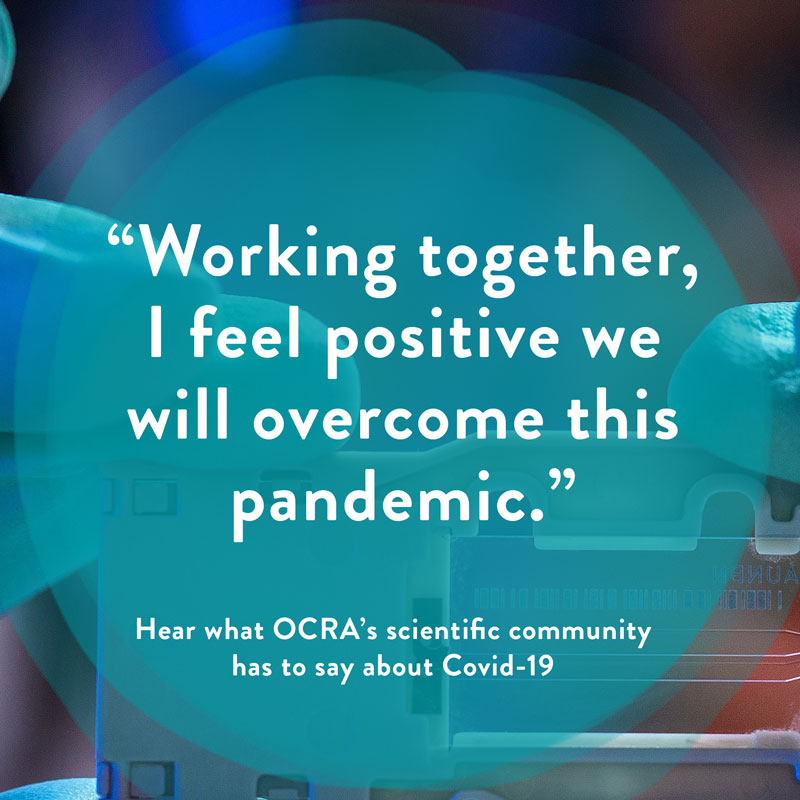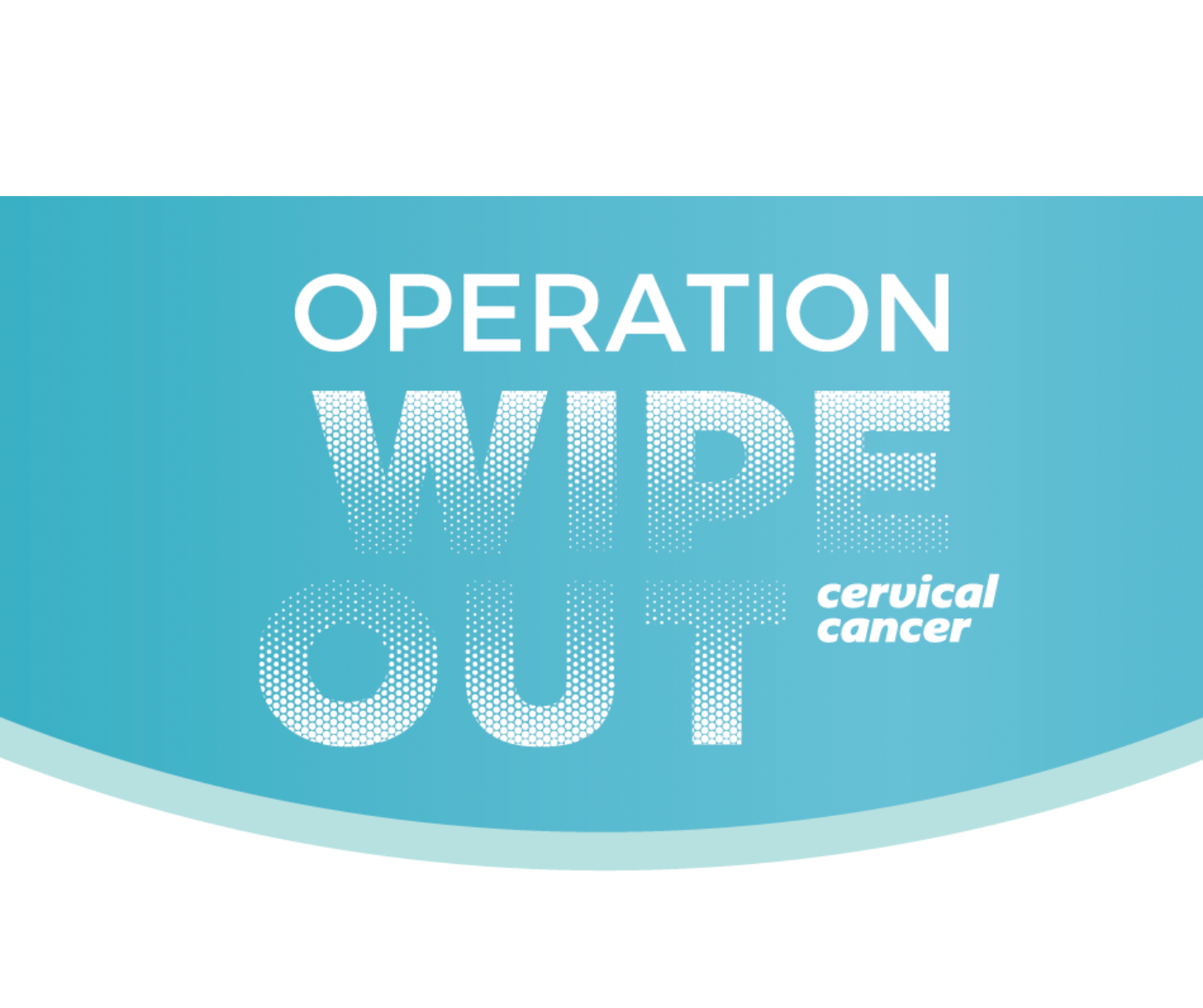
We reached out to our grantees and Scientific Advisory Committee, many of whom are on the frontlines – working in hospitals, meeting with patients, seeing firsthand the impact of Covid-19. We wanted to hear their words and reflections.
“What do you wish everyone understood right now?” we asked them. “And what gives you hope?”
Here are their responses:
What you need to know about Covid-19
- “This will pass, and we all need to try to be patient and participate in physical distancing. I saw a great message on Twitter that said, ‘I imagine all the closures and cancellations give people a sense of ominousness. But it’s really an amazing act of solidarity: we’re sacrificing so we can give nurses, doctors, and hospitals a fighting chance. Start from there and hopefully we can figure out the rest.’ (Matt Pearce). This is what I try to remember on the days that I am feeling anxious about how things are in the world right now.”
- “Keeping yourself safe and healthy contributes to keeping everyone else safe, and is the most important thing you can do now.”
- “Each one of us can and must contribute to control further spread of this virus. We need to understand that this virus is nothing if we block the cycle of its multiplication from one human body to another. We need to cover our breath, sneezes and coughs, even if we don’t have symptoms, as many people are asymptomatic carriers of Covid-19. This way we will stop contaminating the areas and surfaces. If you touch anything unsafe or are in a possibly contaminated area, wash your hands, face (around eyes and nose – entry ports for viruses) and clothes. Maintain hygiene when buying groceries or in public places and follow the lockdown rules. It is important that you ‘don’t give and don’t take the virus.’”
- “If you are Covid-19 positive – please do not panic. Make sure that you quarantine yourself. Eat well, keep yourself hydrated and take rest to support your body’s fight with the Covid-19 virus. Watch your symptoms carefully to decide when it is necessary to go to the hospital. Remember that many people have recovered from this virus and you can also be one.”
- “I think it is extremely important that all of us in the United States and the world follow the directions of the Centers for Disease Control and Prevention (CDC) and World Health Organization (WHO) and adhere to the stay-at-home order. The best chance at overcoming the Covid-19 pandemic is to flatten the infection curve and limit the number of people exposed to Covid-19.”
Remaining hopeful in a pandemic
- “One thing that gives me hope is the incredible number of people who have been creative and looked for ways to help. For example, my uncle is the director of a 3D printing lab, and he worked with doctors to develop a face shield that can be 3D printed and sterilized for use in the clinic. He shared the pattern online for free so people all around the world with access to a standard desktop 3D printer can help make protective gear for their local clinics. I also met a woman who has been reaching out to local restaurants to get food donations so she can bring hot meals and coffee to the people working around the clock to treat patients and run the lab tests. All the community members making cloth masks, donating to local food banks, and doing their part to physically distance also give me hope.”
- “I have been greatly inspired by seeing everyone come together in these challenging times to help each other. I feel like I have communicated more with many of my colleagues than I have in years and really worked together to make challenging but necessary decisions and changes. I have also been impressed by the leadership that many of my colleagues have shown in navigating these changes and taking care of others.”
- “Covid-19 has created opportunities for research that will help us understand how viral infections affect patients with cancer. For example, patients receiving immunotherapy treatments often develop immune-related adverse effects, the cause of which we don’t really understand. Understanding how patients react to virus infections while receiving immunotherapy will help us in the future to determine whether virus infections during therapy increase the risk of immunotherapy toxicities or whether virus infections influence response to immunotherapy in any way.”
- “Humans have faced similar battles in the past. Now we have better scientific understanding, resources and we are more equipped to face this challenge. For short-term, vaccines will be useful. For long-term, to deal with another strain of Covid-19 after a few years or similar viruses, we need drugs to inhibit the mechanism of its growth in human cells.”
- “What gives me hope that we will overcome this terrible virus is the hard work and sacrifice of our medical teams, as well as the scientists desperately working to find treatments and a vaccine for Covid-19. Working together, I feel positive we will overcome this pandemic.”
- “Our daughter wants to watch Frozen 2 about 10 times a day. In the movie, there’s an enchanted forest that will transform those who enter, and then they never come out of it the same. I feel that Covid-19 is going to transform everyone, like the enchanted forest, in some way. And actually, a lot of it is for the better.”
In case you missed it, OCRA grantee Dmitriy Zamarin, MD, PhD, is exploring the potential of viruses in treating ovarian cancer. Read more about how his work is moving immunotherapy forward.


